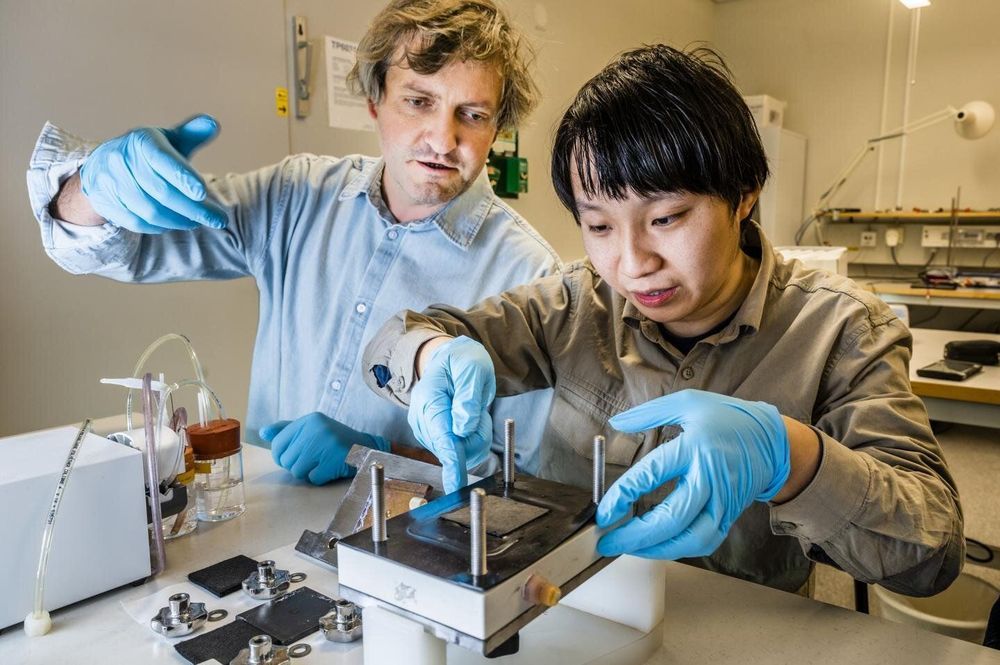Are organic batteries coming?
Researchers at the Laboratory of Organic Electronics, Linköping University, have for the first time demonstrated an organic battery. It is of a type known as a ‘redox flow battery,” with a large capacity that can be used to store energy from wind turbines and solar cells, and as a power bank for cars.
Redox flow batteries are stationary batteries in which the energy is located in the electrolyte, outside of the cell itself, as in a fuel cell. They are often marketed with the prefix ‘eco,” since they open the possibility of storing excess energy from, for example, the sun and wind. Further, it appears to be possible to recharge them an unlimited number of times. However, redox flow batteries often contain vanadium, a scarce and expensive metal. The electrolyte in which energy is stored in a redox flow battery can be water-based, which makes the battery safe to use, but results in a lower energy density.
Mikhail Vagin, principal research engineer, and his colleagues at the Laboratory of Organic Electronics, Campus Norrköping, have now succeeded in producing not only a water-based electrolyte but also electrodes of organic material, which increases the energy density considerably. It is possible in this way to manufacture completely organic redox flow batteries for the storage of, for example, energy from the sun and wind, and to compensate for load variation in the electrical supply grid.
